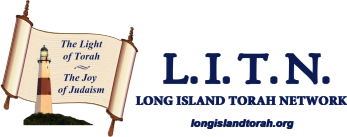Shemos
Jacob and his family have settled in Egypt. As the years pass, Jacob and his twelve sons pass away; their descendants multiply at a remarkable rate, growing from a family into a nation. Alarmed by the Israelites’ numbers and strength, the Egyptians decide to curb the perceived threat by enslaving them. They impress the Israelites into forced labor, employing them in construction projects for the crown and other backbreaking tasks; nevertheless, all their attempts do nothing to curtail the Jews’ astonishing rate of growth.
Soothsayers predict the birth of a Jewish redeemer; Pharaoh orders Jewish male babies drowned in the Nile. One mother from the tribe of Levi places her infant son in a basket, and sends her daughter to place it on the bank of the Nile. Pharaoh’s daughter finds the basket and decides to adopt the Jewish baby, whom she names Moses [Moshe in Hebrew], indicating that he was “drawn out” of the water. The boy’s sister approaches Pharaoh’s daughter and offers to find a Jewish wet nurse for the baby; she brings the boy home to his own mother, who raises him in his early years.
Eventually Moses is old enough to return to Pharaoh’s palace, but he does not forget his roots. Moses commiserates with his enslaved brethren; witnessing an Egyptian taskmaster attacking a Jew, Moses kills the guard and buries him in the sand. He flees the country to escape punishment.
Arriving in the land of Midian, Moses comes to the defense of the daughters of a man named Jethro, who are being harassed for their father’s rejection of the local idolatrous religion. Moses is invited into Jethro’s home, and ends up marrying his daughter, Zipporah, who bears him two sons.
Moses works for Jethro as a shepherd. Pasturing the sheep in the desert, he comes across a bush that burns but is not consumed. Stopping to examine the miraculous sight, Moses hears the voice of God. God informs Moses that He intends to rescue the Jewish People from their misery, and commands Moses to serve as His emissary to Pharaoh. A lengthy dialogue ensues, with Moses offering a variety of arguments for why God should choose someone else; according to the Midrash, Moses is afraid that his elder brother, Aaron, will feel slighted. God declares that Aaron will feel only joy on his brother’s behalf – but agrees that Aaron will serve as Moses’ spokesman, since Moses has a speech impediment.
Moses travels back to Egypt, where me meets up with Aaron and informs the Jewish elders of his mission. Moses and Aaron approach Pharaoh and ask for a three-day hiatus for the Jews, who want to worship their God in the desert . “Who is God,” Pharaoh haughtily responds, “that I should listen to Him?” Pharaoh increase the workload of the Israelite slaves. Moses cries out in pain to God, who reassures him that redemption for the Jews and retribution for Pharaoh are imminent.
Click below to open a printable pdf
Soothsayers predict the birth of a Jewish redeemer; Pharaoh orders Jewish male babies drowned in the Nile. One mother from the tribe of Levi places her infant son in a basket, and sends her daughter to place it on the bank of the Nile. Pharaoh’s daughter finds the basket and decides to adopt the Jewish baby, whom she names Moses [Moshe in Hebrew], indicating that he was “drawn out” of the water. The boy’s sister approaches Pharaoh’s daughter and offers to find a Jewish wet nurse for the baby; she brings the boy home to his own mother, who raises him in his early years.
Eventually Moses is old enough to return to Pharaoh’s palace, but he does not forget his roots. Moses commiserates with his enslaved brethren; witnessing an Egyptian taskmaster attacking a Jew, Moses kills the guard and buries him in the sand. He flees the country to escape punishment.
Arriving in the land of Midian, Moses comes to the defense of the daughters of a man named Jethro, who are being harassed for their father’s rejection of the local idolatrous religion. Moses is invited into Jethro’s home, and ends up marrying his daughter, Zipporah, who bears him two sons.
Moses works for Jethro as a shepherd. Pasturing the sheep in the desert, he comes across a bush that burns but is not consumed. Stopping to examine the miraculous sight, Moses hears the voice of God. God informs Moses that He intends to rescue the Jewish People from their misery, and commands Moses to serve as His emissary to Pharaoh. A lengthy dialogue ensues, with Moses offering a variety of arguments for why God should choose someone else; according to the Midrash, Moses is afraid that his elder brother, Aaron, will feel slighted. God declares that Aaron will feel only joy on his brother’s behalf – but agrees that Aaron will serve as Moses’ spokesman, since Moses has a speech impediment.
Moses travels back to Egypt, where me meets up with Aaron and informs the Jewish elders of his mission. Moses and Aaron approach Pharaoh and ask for a three-day hiatus for the Jews, who want to worship their God in the desert . “Who is God,” Pharaoh haughtily responds, “that I should listen to Him?” Pharaoh increase the workload of the Israelite slaves. Moses cries out in pain to God, who reassures him that redemption for the Jews and retribution for Pharaoh are imminent.
Click below to open a printable pdf
| vayechi_snapshot_and_closer_look_template_final.pdf | |
| File Size: | 994 kb |
| File Type: | |

